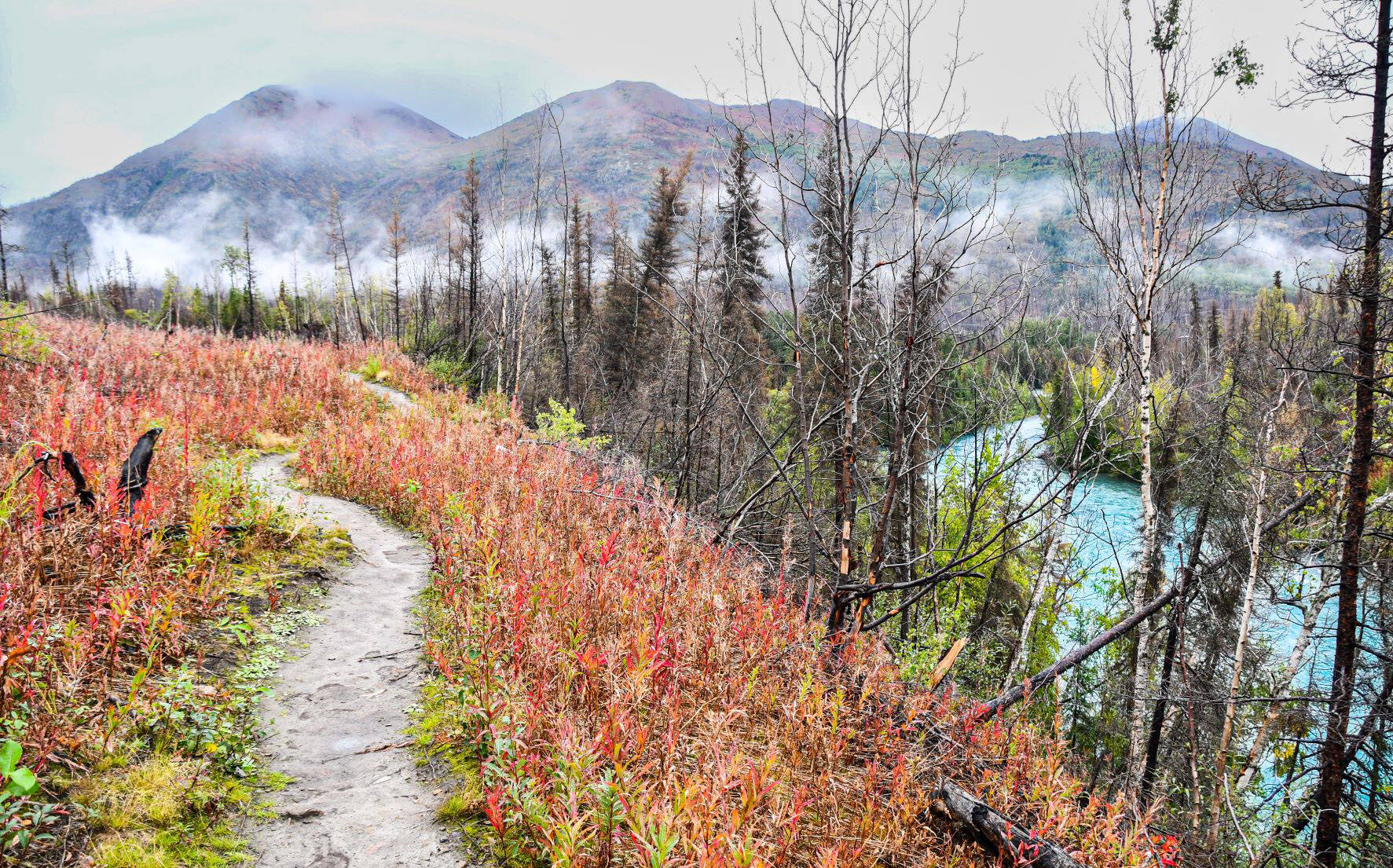After camping on the Kenai National Wildlife Refuge for a weekend, you return to work Monday feeling mentally recharged and refreshed. Your brain might feel less overwhelmed and cluttered. Some of your usual aches and pains might even feel better!
The positive health changes that many people may feel after a weekend outside are not necessarily just in your head.
Before taking a seasonal park ranger position on the refuge, I worked as a physical therapist for six years. Being a physical therapist means spending a lot of time teaching people how to improve their health, including coaching people in exercises and activities they could perform outdoors.
However, all my clinic jobs were indoors, with limited access to outdoor recreational space. So, I found it challenging to bridge the gap between the short blocks of time a patient would spend in a windowless clinic and the rest of a patient’s spare time that they could potentially spend outdoors.
I’m a strong believer in conventional physical therapy treatment and saw many of my patients temporarily make huge improvements within the confines of an indoor clinic. However, I found that patients who were most successful in their long-term recovery often fit a common pattern that extended far outside the clinic.
A typical example is a patient who might be struggling with slow improvement despite vigilantly doing the recommended exercises in their living room or at the gym. They would then take a two-week vacation, typically outdoors and away from technology.
When they returned to the clinic, they would bashfully tell me that they did not work on their exercises but would excitedly exclaim they were finally feeling much better. Of course, they would still credit physical therapy with improving their pain, but I became convinced that their time spent connecting to nature was just as beneficial.
The list of physical and mental benefits that come with time outdoors is extensive. After spending a summer working outdoors on the refuge, I’ve also experienced some of these benefits in my health. Today, I’m highlighting only a few benefits of connecting with nature that I’ve seen in others and myself.
People can breathe easier in greener spaces. Lung health is significantly better in people who live and recreate in green areas as compared to areas with little greenery.
Alaskans already have a significant advantage over most of the United States, with concrete jungles nearly nonexistent. Other benefits include more vegetation and better lung health, such as lower rates of cancer and kidney disease.
Being outdoors helps with your future motivation to move and exercise more. Movement outdoors can feel less scripted and tedious than working out at the gym or a clinic.
Indoor leisure time at home often results in more couch time cozied up with a bag of your favorite snacks. In contrast, an outdoor activity could be as strenuous as a hike up the Skyline Trail or as simple as the physical effort of setting up a campsite, walking extra steps to prepare and clean up a meal outside, then tuning into your surroundings for a walk around the campground.
Your mental energy is restored by spending time outdoors and unplugged. But unfortunately, most of our modern lives have distracting stimuli that result in a slow and often unnoticed drain on our mental energy. For example, when I worked in clinics with many types of stimuli, I came home feeling edgy and mentally drained.
One small workspace would pull my attention in different directions with fluorescent lights, laptop screens with instant messages that demanded instant responses, and ringing and vibrating phones. All while simultaneously executing care for two human beings with different injuries and personalities, and monitoring how the intern, working next to me, was doing with their two patients.
While a certain level of mental stimulation is healthy for anyone to keep their brain sharp, your brain still needs rest periods away from screens and other stimuli to recharge and reset. When your mind has space to relax, your body also stores less physical tension and pain.
Even if it’s still raining again on the refuge this upcoming weekend, your body will thank you if you spend some time outside.
Indulge your lungs in breathing some fresh air. Let your eyes focus on trees and hills farther away than your screens. Feel the sensation of the wet ground under your bare feet. Connect with the seasonal changes by taking a slow walk to admire the colorful foliage and watch creatures getting ready for winter.
After you’ve spent a weekend on the refuge doing all this, it’s very possible that you’ll need one less trip to your doctor later!
Jaimie Musen is a 2022 Seasonal Park Ranger at the Kenai National Wildlife Refuge. You may have seen a few of the seasonal rangers in a Refuge campground or on a local trail this past summer. To learn more about the Kenai NWR and upcoming events that can connect you more to nature, check out kenai.fws.gov or www.facebook.com/kenainationalwildliferefuge. Also, find more Refuge Notebook articles (1999–present) at https://www.fws.gov/kenai-refuge-notebook.


